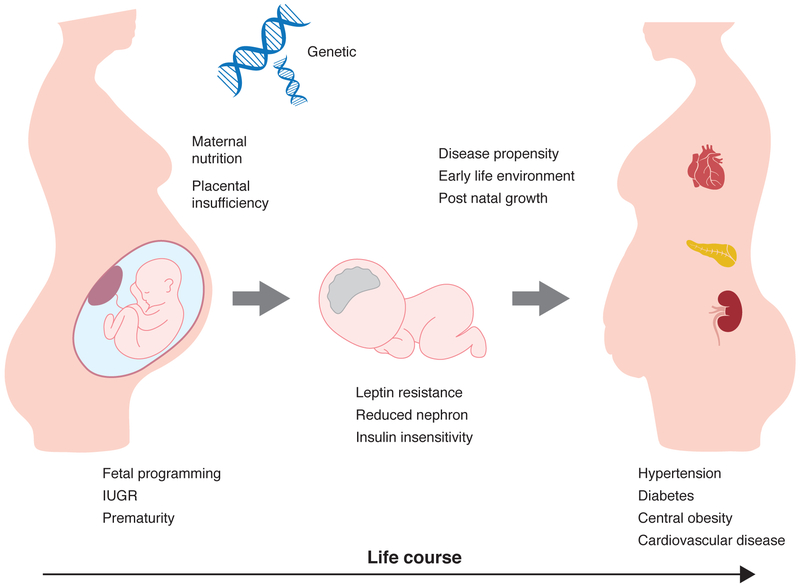Figure 1.
Perinatal factors converge to establish the risk of hypertension. Acting upon genetic susceptibility, maternal health and placental function powerfully influence fetal growth and development. The subsequent hormonal and nutritional milieu impact gene expression and organ morphology, two key determinants of the pathway conceptualized as fetal programming; at times, this adverse intrauterine environment manifests as intrauterine growth restriction or prematurity. Following delivery, the early life environment and postnatal growth continue to reset disease propensity through key regulatory systems, including leptin and insulin signaling pathways, as well as nephron endowment. Over the life course, central leptin resistance, reduced kidney function, and insulin resistance can increase the propensity towards hypertension and other components of the metabolic syndrome, including diabetes and obesity.

